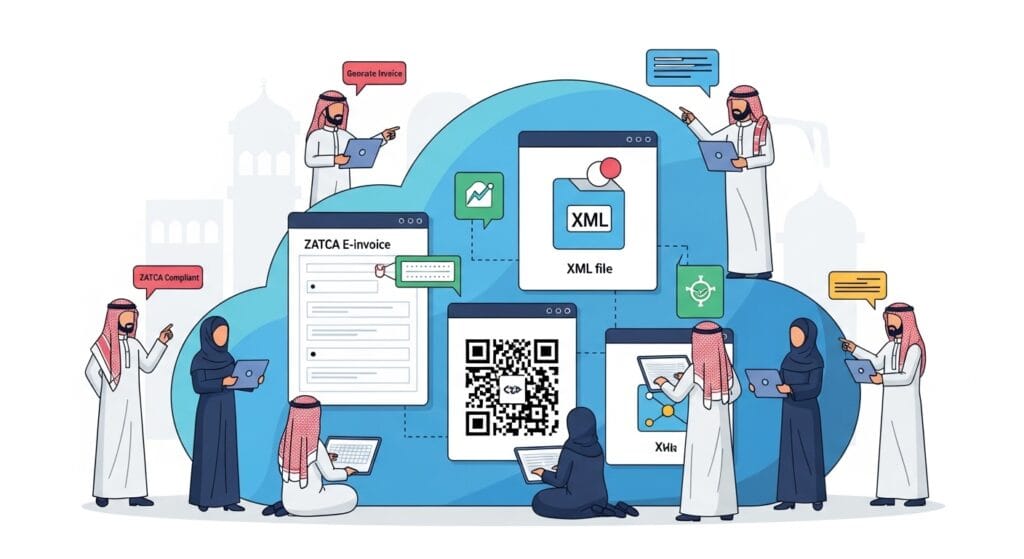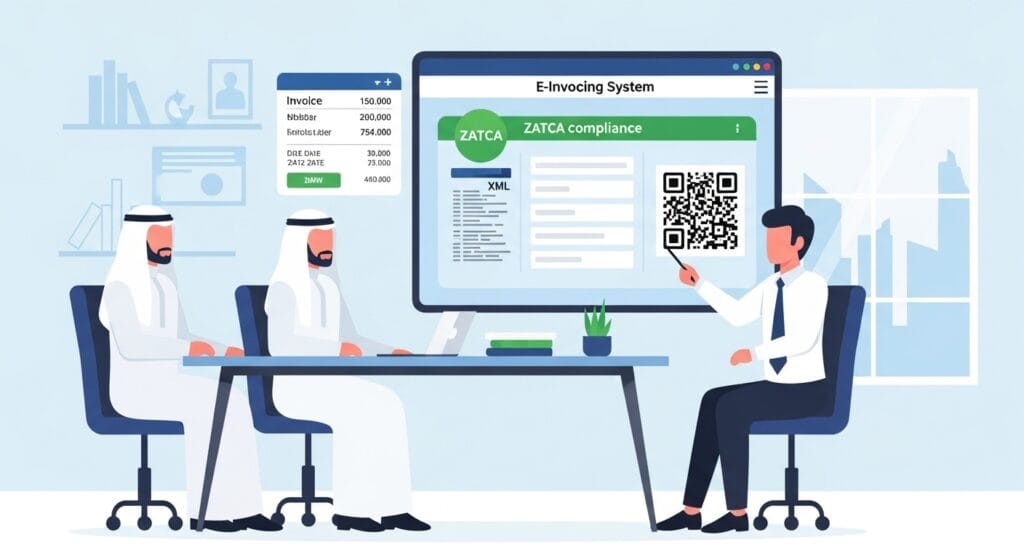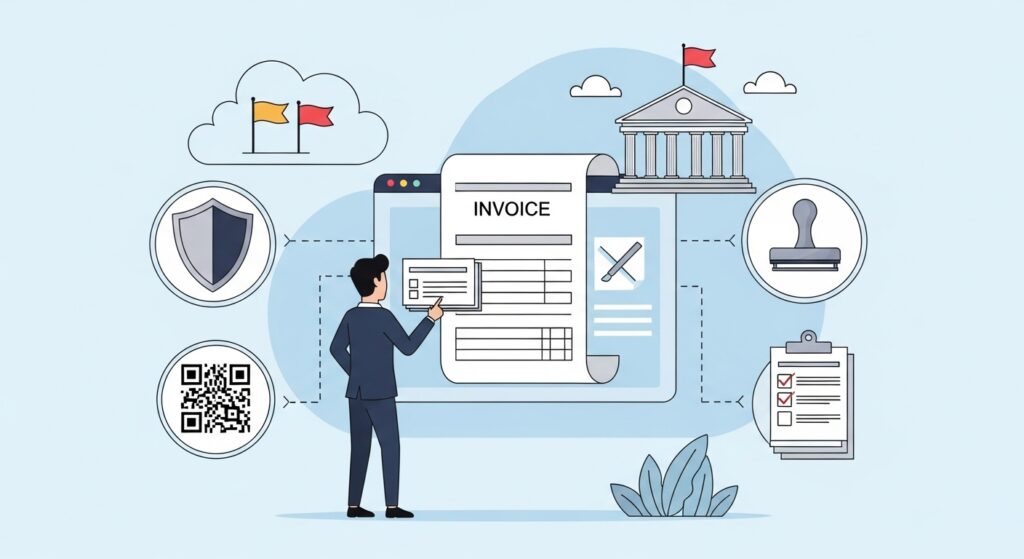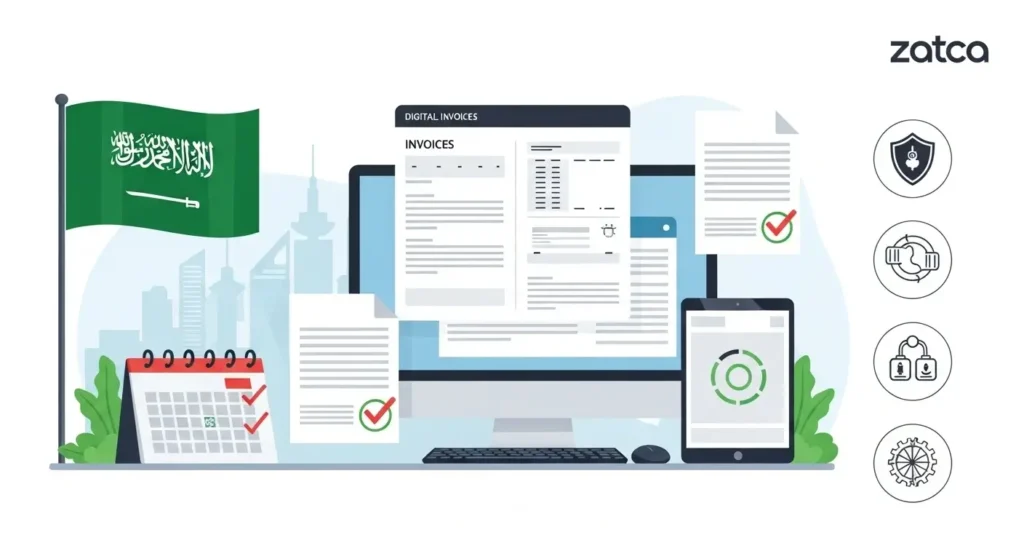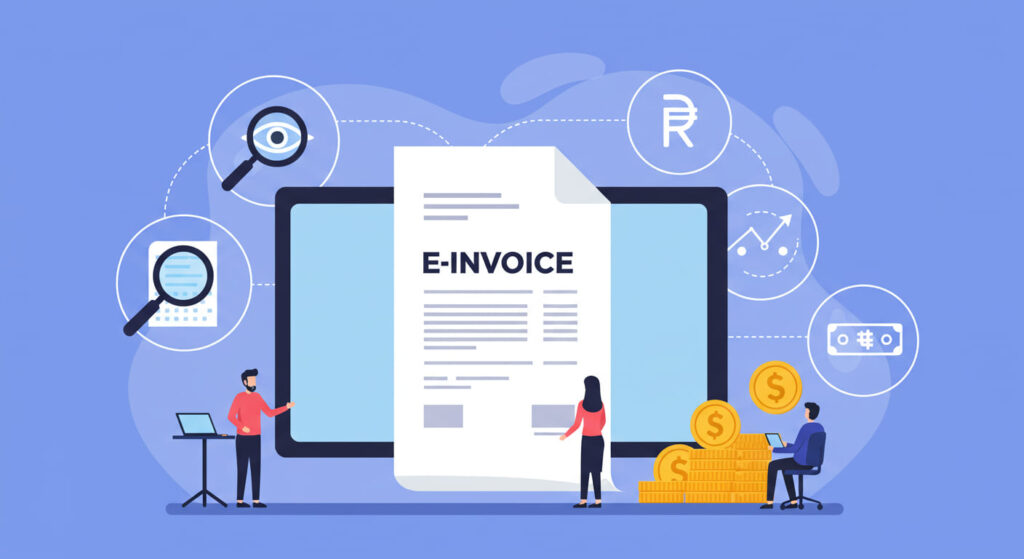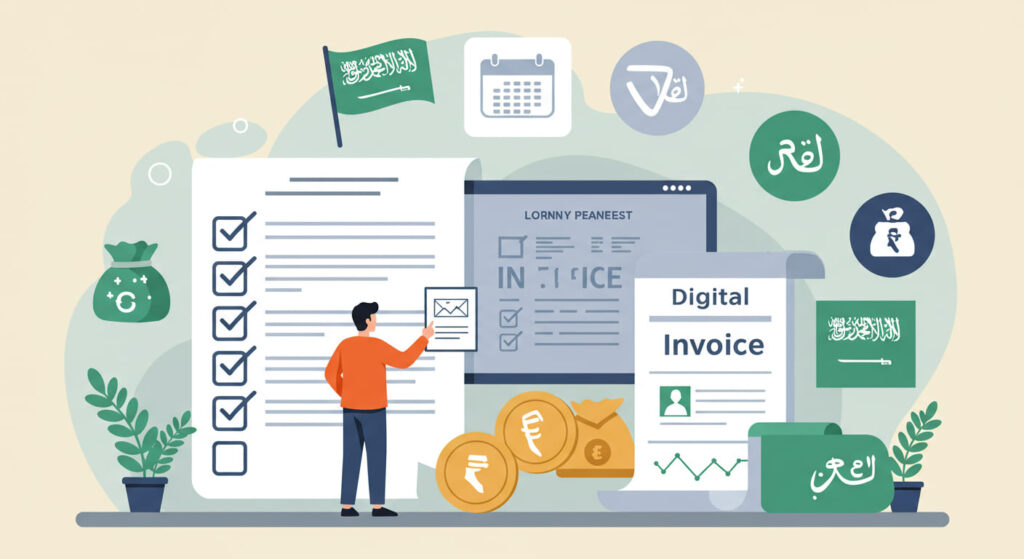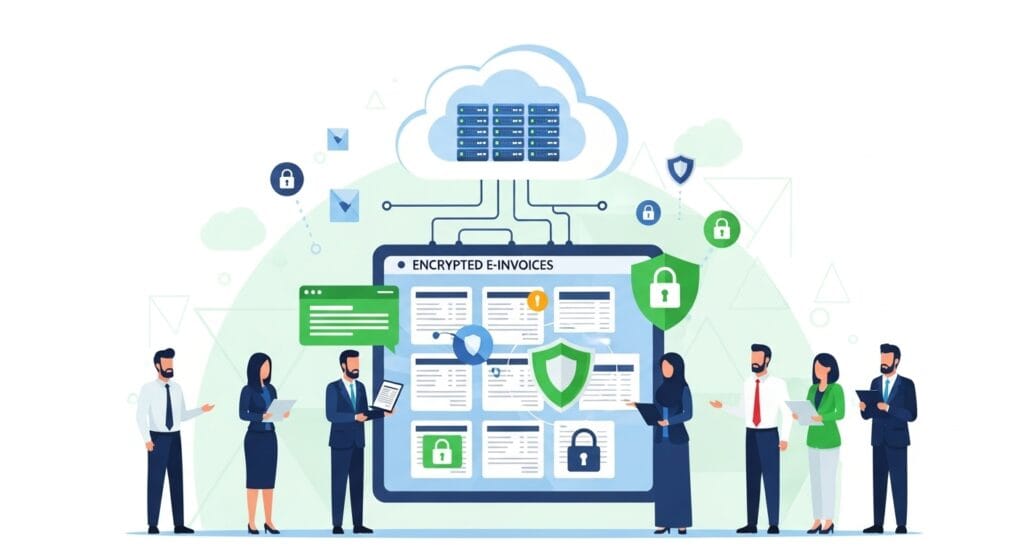
Security and Data Privacy in E-invoicing: What You Need to Know When Choosing Your KSA Provider
As Saudi Arabia’s businesses undergo a rapid digital transformation, the Zakat, Tax and Customs Authority (ZATCA) e-invoicing (Fatoora) system stands as a cornerstone of this new, digital-first economy. The rollout of Phase 2 (the Integration Phase) is compelling businesses to move beyond simple compliance and integrate their core financial systems directly with ZATCA’s platform. This integration, however, opens a critical new conversation. While most businesses are rightly focused on compliance—”Does my system meet ZATCA’s rules?”—many are overlooking an equally vital, long-term question: “Is my data secure?“ When you choose an e-invoicing solution, you are not just buying a piece of software. You are entrusting a partner with the most sensitive data your company possesses: your complete sales ledger, your pricing, your customer list, and your core financial records. In this new landscape, choosing from the many e-invoicing solution providers in Saudi Arabia becomes a decision that is as much about security and data privacy as it is about compliance. This article will guide you through the essential security considerations and provide a checklist for what to demand from your provider. Why E-invoicing Security is Non-Negotiable An e-invoice is not just a digital version of a paper receipt. It is a structured data file (XML) containing the DNA of your business transactions. The stakes for protecting this data are enormous: Your data’s security is only as strong as the weakest link, and that weak link is often the third-party provider you choose. ZATCA’s Built-in Security: The Foundation The good news is that ZATCA designed the Fatoora system with a robust security foundation. Your provider isn’t starting from scratch; they must adhere to a strict set of protocols. Here are the core security features mandated by ZATCA itself: This framework ensures the integrity of the invoice and the security of its transmission to ZATCA. But what about the security of your data while it’s sitting on your provider’s server? That is the provider’s responsibility. 7 Security Questions You MUST Ask Your E-invoicing Provider ZATCA secures the pipeline to their platform. Your provider must secure the platform itself. Before you sign any contract, demand clear, specific answers to these questions: Cloud vs. On-Premise: A Modern Security Comparison Many businesses traditionally believe that an on-premise server (in their office) is more secure. In the modern era of ZATCA compliance, this is often a dangerous misconception. Security Aspect On-Premise Solution Secure Cloud Provider (like Daysum) ZATCA Updates Your IT Team’s Responsibility. Must manually update APIs and security patches from ZATCA. Slow and high-risk. Provider’s Responsibility. Patches and updates are rolled out instantly and automatically to all users. Physical Security Your server room. Vulnerable to theft, fire, or flood. Enterprise-grade data centers with 24/7 security, biometric access, and redundant power. Cybersecurity Relies on your local firewall and IT team, who are generalists. Managed by a dedicated team of cybersecurity specialists using advanced threat detection. Backups & Recovery Your responsibility. Often manual, infrequent, and stored in the same building. Automated & Geo-Redundant. Backed up daily to multiple secure locations. Total Cost of Security Extremely high. Includes hardware, IT salaries, and software licenses. Included in your subscription. You get enterprise-grade security for a fraction of the cost. The verdict: For over 99% of businesses, a reputable, ZATCA-approved cloud provider offers vastly superior security and reliability than an on-premise solution. Daysum: Security & Compliance at the Core of Your ERP Choosing from the list of e-invoicing solution providers in Saudi Arabia is a critical decision. At Daysum, security isn’t an add-on; it’s the foundation of our Odoo ERP solution. We don’t just “bolt on” a ZATCA module. Our e-invoicing solution is a native, core function of your integrated accounting, sales, and inventory system. The Daysum Security Guarantee: Frequently Asked Questions (FAQs) Q1: Is my data shared with ZATCA secure? Yes. The connection between your provider’s system and ZATCA’s Fatoora platform is a highly secure and encrypted API. This “digital tunnel” is designed to protect data in transit. Q2: Can ZATCA see all my business secrets, like my costs or employee salaries? No. ZATCA only requires the data points listed in the e-invoicing regulation, which are related to the invoice itself (seller, buyer, items, quantities, price, tax). They do not have access to your internal costs, payroll, HR records, or other private data within your ERP. Q3: What’s the biggest security mistake a business can make with e-invoicing? Choosing an unapproved provider or using a simple, standalone invoicing tool that isn’t part of a secure, integrated system. This creates data silos, increases the risk of a breach, and often leads to manual data entry errors. Conclusion: Choose a Partner, Not Just a Provider Your e-invoicing system is the new digital heart of your business’s finances. The security of this system is paramount. Don’t choose a provider based on price alone. Scrutinize their security, their infrastructure, their backup plans, and their commitment to data privacy. Choose a long-term partner who sees security not as a checkbox, but as a core responsibility. Don’t leave your most critical financial data at risk. Contact Daysum today for a free, confidential consultation. We’ll assess your current compliance and show you what a truly secure, integrated, and ZATCA-approved ERP solution looks like.

